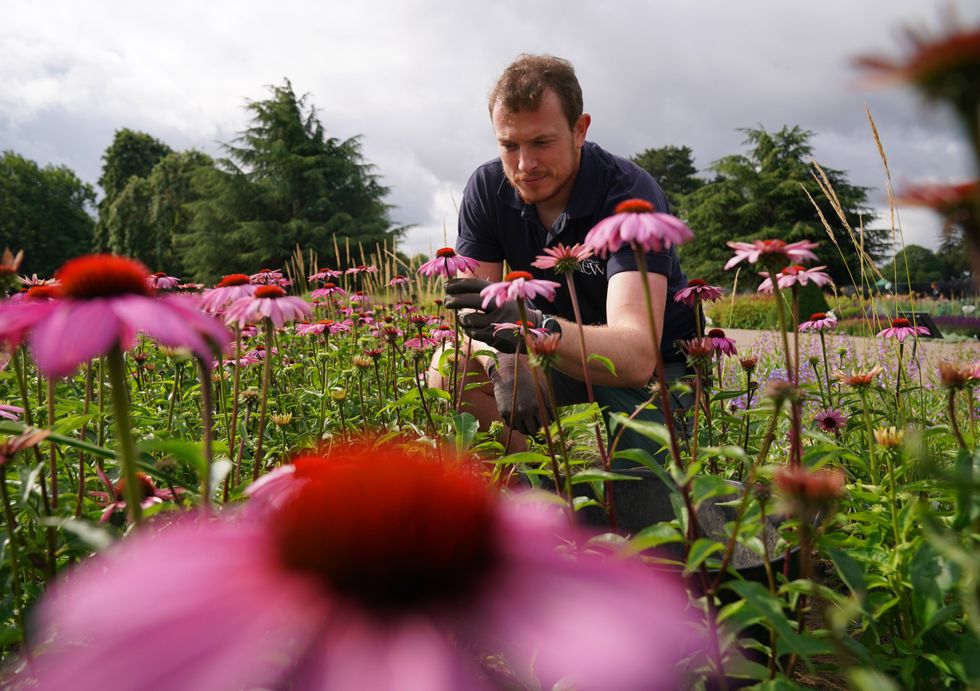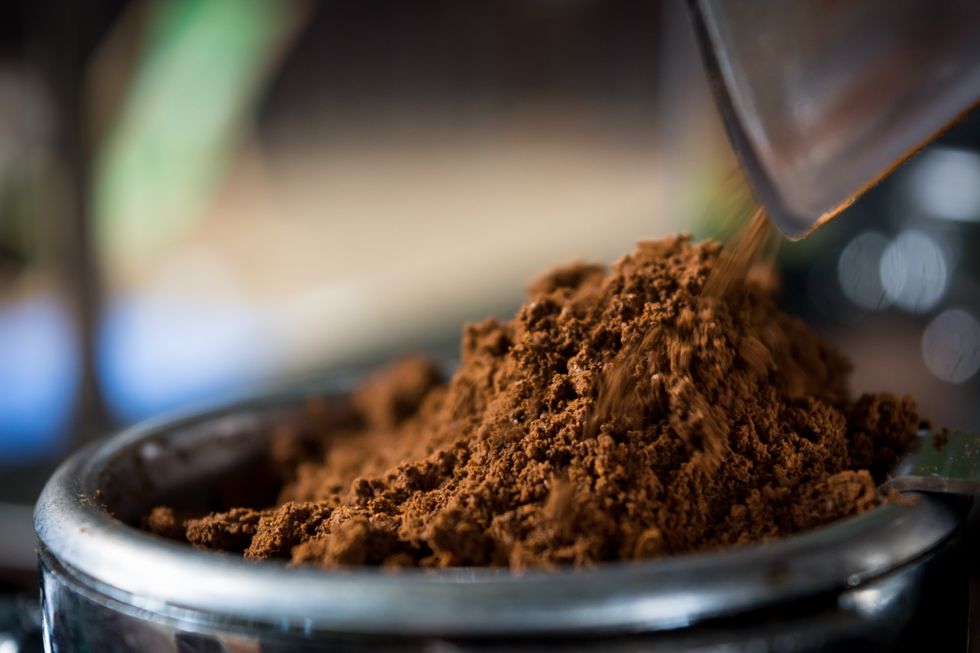A 'used' kitchen ingredient spurs rapid growth in plants according to gardener - peace lilies ‘love it’

Peace lilies may grow faster when fed nitrogen-dense ingredients
|GETTY

Five plants may hugely benefit from used coffee grounds, a gardener has told GB News
Don't Miss
Most Read
A growing number of gardening trends are embracing household items since it emerged that their benefits extend beyond the kitchen.
The natural properties of kitchen scraps offer the unique benefit of slowly releasing nutrients into the ground, which many fertilisers do at breakneck speed.
Caffeinated coffee grounds have emerged as an excellent fertiliser for indoor and outdoor plants.
Thanks to its high nitrogen content, the organic ingredient is frequently lauded by experts for spurring rapid growth in various types of foliage.

Fast-growing plants may benefit from larger doses of ground coffee
|PA
Among these experts is Jane Dobb, who has acquired a handful of unique skills throughout her 10 years as a gardener.
In a conversation with GB News, the expert touted the benefits of coffee grounds as “one of the easiest homemade fertilisers”, claiming that five plants particularly enjoy the feed.
She explained: “Coffee grounds have a lot of nitrogen, which helps plants grow leaves and keep green.”
Not only is the nutrient pivotal in maintaining the structure of flowers, but it is also a key player in the growth of new stems and leaves.
Additionally, nitrogen has been recognised for its protective effects against the development of diseases.
“Sprinkle coffee grounds around your plant or mix them in the soil before planting,” explained Jane.
“If you steep used coffee grounds in water overnight, you can make liquid fertiliser and then water your plants with it.
“The Devil’s Ivy, Peace Lilies, Christmas Cactus’, Money Plants and Philodendron will all love it.”
LATEST DEVELOPMENTS
- Slow-release fertilisers or rotted manure? Gardener names best plant food for bountiful displays this spring
- 'Speed up' orchid flowering with essential task that encourages 'upper buds to open'
- Monty Don shares gardening job that is ‘best’ done in February – expect ‘spectacular displays of blooms and honey scent’

Coffee is packed with plant-friendly nutrients
|GETTY
Touching on application methods, the expert explained: “Fertiliser applications in spring depend on a lot of factors, like the type of plant, soil quality, and fertiliser.
“Plants that are young or growing rapidly may benefit from more frequent fertilisation, typically every two to four weeks during the spring.
“It may be necessary to fertilise more often if the soil isn’t good for growing plants.
“You may need to fertilise more frequently during periods of frequent rain or watering because heavy rainfall or watering can leach nutrients from the soil faster. You need to monitor plants, as over-fertilising can be back for them."










